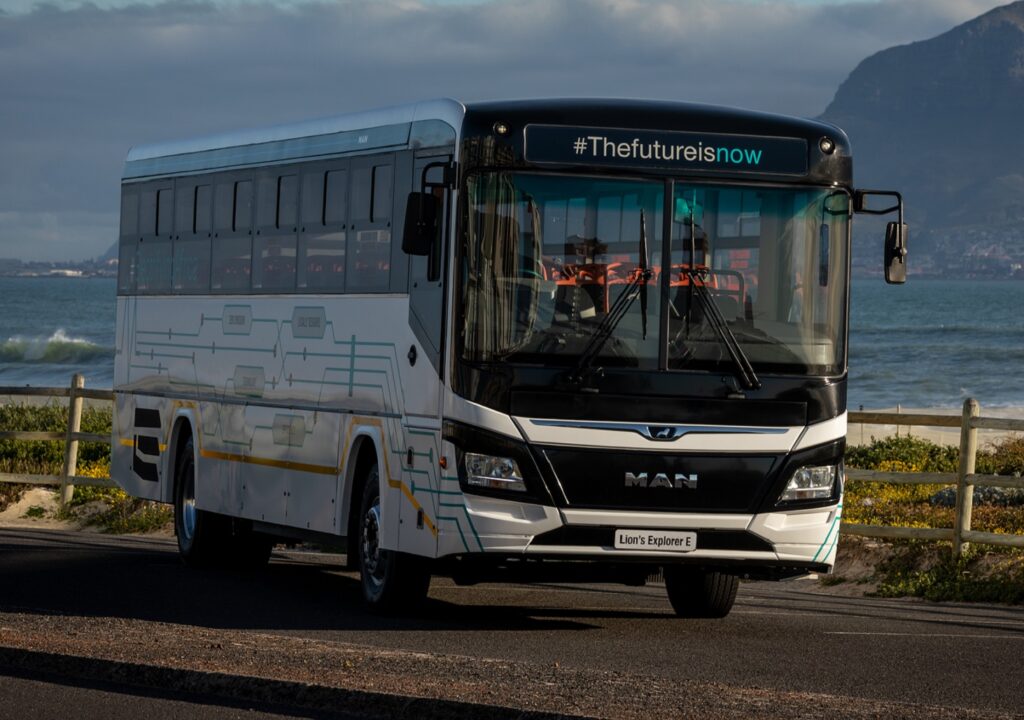
Under the theme “Solidarity, Equality, Sustainability”, South Africa’s G20 presidency in 2025 is a unique opportunity for the country to accelerate its national as well as the global shift towards sustainable transport. The presidency offers a crucial platform to showcase the country’s advancements towards climate-neutral transport, inspire other nations, and establish more specific targets within the sector. By placing the distinct challenges and opportunities of African energy and transport transitions at the forefront of global dicussions, South Africa can advocate for differentiated responsibilities, urging developed nations to fulfil their climate finance commitments, and facilitate technology transfer, which is indispensable for a developing economy’s transition.
With more than two-thirds of its 63 million people living in cities, South Africa has the largest urban population in Africa. As its cities grow, so does the need for sustainable mobility. With road traffic dominating its infrastructure, the country remains heavily reliant on fossil fuels. By 2022, the transport sector had accounted for 12 percent of the country’s total CO2 emissions from fuel combustion, an increase of 35.7 percent since the year 2000. If current trends continue, transport emissions could increase from 55 million tonnes of CO2 today to 126 million tonnes by 2050. Approximately 90 percent of these emissions will come from road transport. For comparison: the German transport sector emitted 146 million tonnes of CO₂ in 2024. South Africa’s motorisation rate is nearing 192.8 vehicles per 1,000 people — significantly high compared to the continent’s 51.2 vehicles per 1,000 people.
Intending to break the trend of increasing emissions in the transport sector, South Africa launched its Green Transport Strategy (GTS) in 2018. The strategy aims to achieve a 50 to 80 percent reduction in greenhouse gas (GHG) emissions from transport by 2050 (relative to 1990 levels). While the GTS continues to guide current initiatives, its original reduction targets are now insufficient for the net-zero future that South Africa aims for by 2050, as stated in its updated Nationally Determined Contribution (NDC). Moreover, the recent Climate Change Act, passed in 2024, underscores a heightened commitment by mandating that each sector, including transport, publish an adaptation plan and set sectoral emission targets every five years, consistent with the national emission target.

Electric vehicles (EVs) are set to play a central role in South Africa’s transport transformation. The country aims for electric and hybrid vehicles to make up at least ten percent of the national fleet by 2030, rising to 40 percent by 2050. In 2023, an estimated 3,500 new EVs were sold, a 182 percent increase in the EV stock since 2019. However, charging infrastructure remains limited with only about 300 public charging stations, far below the G20 country average of 71,000 chargers in 2021.
In 2023, South Africa launched its Electric Vehicle White Paper prioritising a mix of incentives to support the EV sector. Included are reduced import duties on EV batteries, a 20 percent cash grant for manufacturers and a 20 percent duty credit for locally produced batteries. The country also aims to expand its charging infrastructure network with plans to add 40 renewable energy-powered charging stations each year.
The rapid adoption of EVs will require a shift towards a more diversified low-carbon energy mix. Currently, over 84 percent of the country’s electricity is generated from coal. This heavy reliance positions the energy sector as the nation’s primary source of greenhouse gas emissions, significantly exceeding contributions from both transport and industry. With an estimated CO2 intensity of power of around 275 grams per kWh in 2022, South Africa is one of the highest-ranking regional emitters. For South Africa to truly cut transport emissions, the electricity powering its vehicles must come from cleaner sources. Addressing the challenge, the government’s Integrated Resource Plan 2023 (IRP 2023) sets targets for more renewable energy by 2030, including 4.5 gigawatts (GW) of wind power, 3.6 GW of solar power, and 6.3 GW of smaller, distributed power generation and a net-zero electricity sector by 2050.
Beyond renewables, South Africa is also looking into green hydrogen as a future clean energy source. In 2023, the government approved a Green Hydrogen Commercialisation Strategy, aiming to produce and export hydrogen while reducing emissions. The SA-H2 Fund, a blended finance vehicle involving domestic and international partners, seeks to mobilise one billion South African rand (ZAR) for hydrogen projects. National targets include deploying nearly 12 GW of electrolysis capacity to produce roughly 500 kilotonnes of hydrogen annually by 2030, scaling to 40 GW by 2040. This target is notably ambitious; for context, global installed electrolyser capacity stood at 1.4 GW at the end of 2023.
South Africa can also champion a just transformation worldwide by turning local innovations into blueprints for a fairer future. Central to this vision is mineral justice. South Africa is advocating for mineral-rich nations, particularly in Africa, to process critical transition minerals like lithium and cobalt locally. This “beneficiation at source” moves beyond raw material exports, enabling nations to capture greater economic value, create jobs and build resilient EV supply chains. This path could redefine Africa’s role in the green economy.
The example of South Africa shows that the successful global transition to climate neutrality will depend on strong commitments and decisive action by the Global South. This action should be driven by priorities, such as green industrialisation, cross-border technology justice and mineral justice. As holder of the G20 presidency, South Africa now has the opportunity to demonstrate this commitment by pushing sustainable transport at a national and global level.
Rethinking Transport is a GIZ self-financed initiative, implemented by GIZ and Agora Verkehrswende.
 Electric MAN Bus - The first Electric bus built in South Africa, by MAN, Cape Town, 2023 |© Dwayne Senior - Flickr
Electric MAN Bus - The first Electric bus built in South Africa, by MAN, Cape Town, 2023 |© Dwayne Senior - Flickr

Linda Cáceres Leal
linda.caceres.leal@agora-verkehrswende.de
Visit profile

Naville Geiriseb
naville.geiriseb@agora-vekehrswende.de
Visit profile